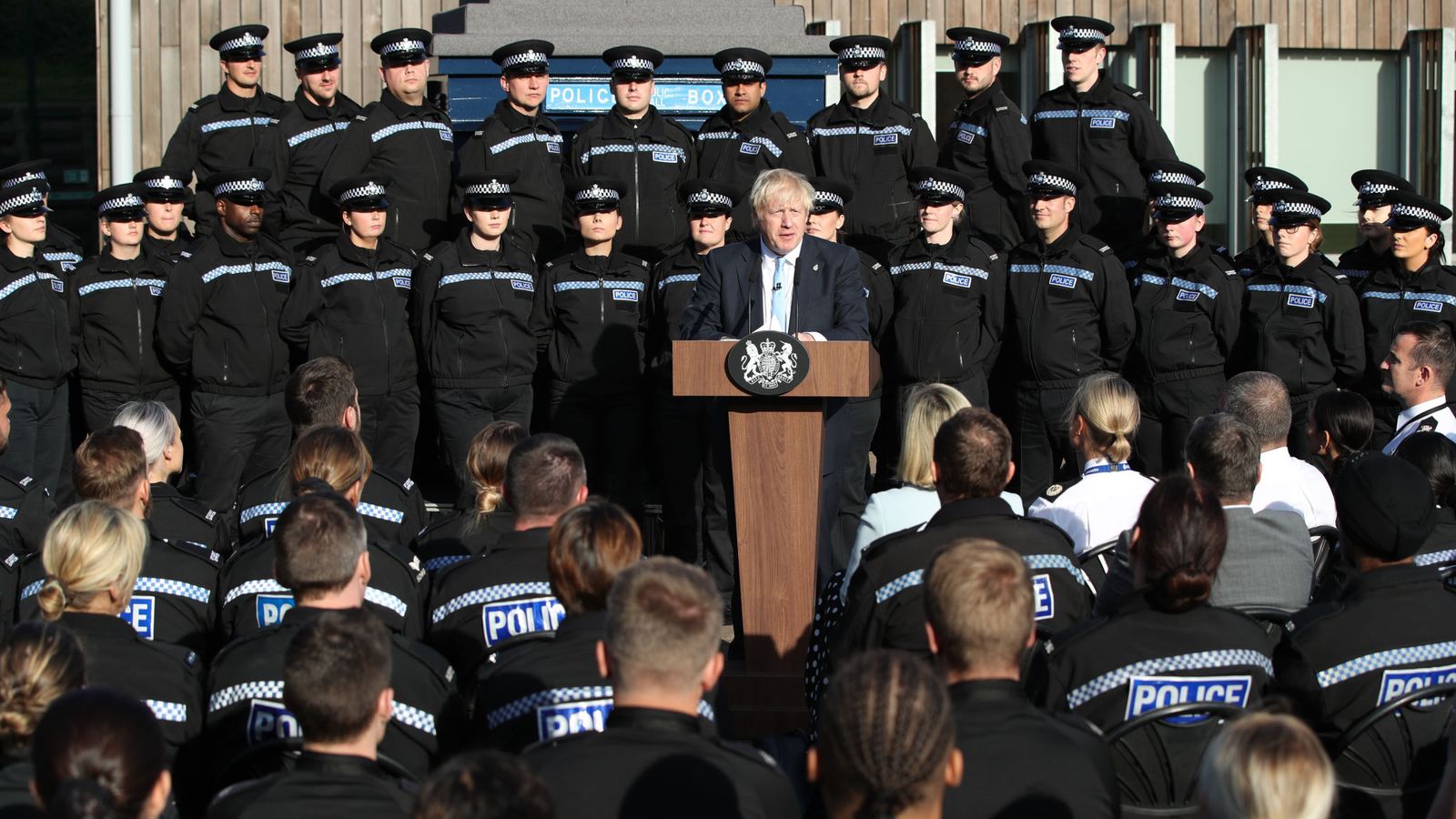Some words carry around with them a permanent air of hyperbole. They are words that, no matter the circumstances in which they are used, will always seem absurd and excessive. Fascism may be the most emblematic of this type of word. It is a word familiar to everyone, forever associated with history lessons on World War II and Germany’s Third Reich. While regimes both before and after have been fascist – not least Vladimir Putin’s Russia – the word is inextricably entwined with Hitler and the unforgivable crimes of Nazi Germany. Rightly, people imagine that it is difficult for any government or individual to ever again visit such atrocities upon a people – although once more Putin may be coming close.
To this end, Mhaira Black MP was brave, but possibly also misguided, to describe the government as fascist before the House of Commons this week. She knew it was a loaded term. She euphemistically described it as the ‘f-word’ at first, before revealing her true meaning with a flourish. Not that the government is f**ked, but that it is fascist. But by choosing to adopt such hyperbole, not only did she undermine her own argument, which is that we are now governed by a government that is incompetent even in the area of the Conservative’s supposed greatest expertise – the economy – but also that we are governed by a government with a disturbingly authoritarian mindset.
It is important to distinguish between governments that are authoritarian and governments that are fascist. Not purely because definitions matter (although they do), but because it can affect the credibility and persuasiveness of an argument. Wrongly call an authoritarian government fascist, and you look like a fear-monger, a child crying wolf. This is how Black’s critics will seek to undermine the legitimate criticisms she made, painting her as an extremist stooge of the SNP, reduced to exaggeration to try and bring the government down.
Perhaps we are at the early stages of a fascist government, and I am wrong. Fascism, after all, does not ‘walk in with jackboots’. Instead, as Hannah Arendt, the political philosopher, wrote, it comes in by stealth, with little harbingering its arrival. Secret police do not sound a trumpet before banging down your door. And there are certainly some fascistic elements within the government – it’s not difficult to imagine Jacob Rees-Mogg revelling in some bastardised version of a Catholic theocracy. But Boris Johnson, despite his cornucopia of faults, is not a fascist, and neither is Rishi Sunak, nor Sajid Javid, nor are many other members of the Cabinet.
It is, however, a government that is clearly authoritarian. Johnson heads a government that is contemptuous of checks and balances, and that is trying to amass ever more power in its centre. This week, reports suggested that the plans to establish an ‘office of the prime minister’ were continuing. Such an office would expand the prime minister’s control over each department, giving him a cadre of ministers dedicated to either pursuing his own personal agenda, or scrutinising the policies and progress of other departments. While such an office is not peculiar in a liberal democracy per se – with Whitehall, if anything, the outlier – it is noteworthy that Johnson is the prime minister trying to construct one.
Nor is the prime minister content to just increase his authority over institutions and ministers that already fall under his dominion. In the twilight of the last parliamentary session, a raft of legislation that expanded executive power and diminished institutional independence became law. Among this was the Elections Act, which targeted the Electoral Commission. Created in 2000, the Electoral Commission is a neutral body, held to account by cross-party committees in parliament and to the independent commissioners. It is not supposed to have any ministerial mandate or government overisght. The Elections Act changes this, introducing a ministerial ‘strategy and policy statement’ that the commissioners must consider, and placing it under the supervision of a government minister. As the Electoral Commission itself said, the statement has ‘no precedent’ in ‘the accountability arrangements of any other comparable liberal democracy’.
While the relatively esoteric reforms of the Electoral Commission may attract little attention,the government’s ongoing battle over Channel 4 continues to draw headlines. Channel 4 is one of the few outlets to have been consistently critical of the government, with Nadine Dorries, the publicity-desperate Culture Minister, condemning the former news anchor, Jon Snow, for his criticisms of Johnson. Privatising Channel 4 would transform its mandate, no longer a broadcaster focused on fulfilling a public duty like the BBC to one focused on profit. This is nothing more than the pursuit of a vendetta, with the Tories hoping to stifle a critical voice . Netflix and other streaming services have shown the economic and practical difficulties in a purely privatised model, while there is no popular call for privatisation or any real reform.
And this is to say nothing of the raft of policies that have sought to target more obvious methods of accountability. The Protest Act, which also became law in the final days of the last session, has given significant power to the police and Home Secretary to stamp down on protests, while the Queen’s Speech shows a government still fixated on Europe, with the object of their affections this time the Human Rights Act and the European Convention on Human Rights. While the last judicial review reforms ended up being all talk, Johnson’s government is clearly not done with trying to corral the courts. Meanwhile, efforts continue to try and keep illegal immigration in the headlines, with Priti Patel pursuing ever more ludicrous and illegal policies, like Rwanda, that have no prospect of having any effect, but that may keep voters on side.
All of these reforms are dangerous and anti-democratic, while the government’s behaviour elsewhere, whether packing the legislative agenda so that parliament cannot scrutinise its bills, or publicly ruminating about breaking international law, shows that there are few conventions or norms that it will not bulldoze. But they do not show a government that is fascist. Even those living in Hungary or Poland, the as-yet-unrepentant prodigal sons of the EU and the democratic order, may be wary of saying that they live in a fascist state. Johnson’s government is dystopian enough on its own merits. Hyperbole isn’t needed here. Honesty is enough.







Pannick on the Streets of London